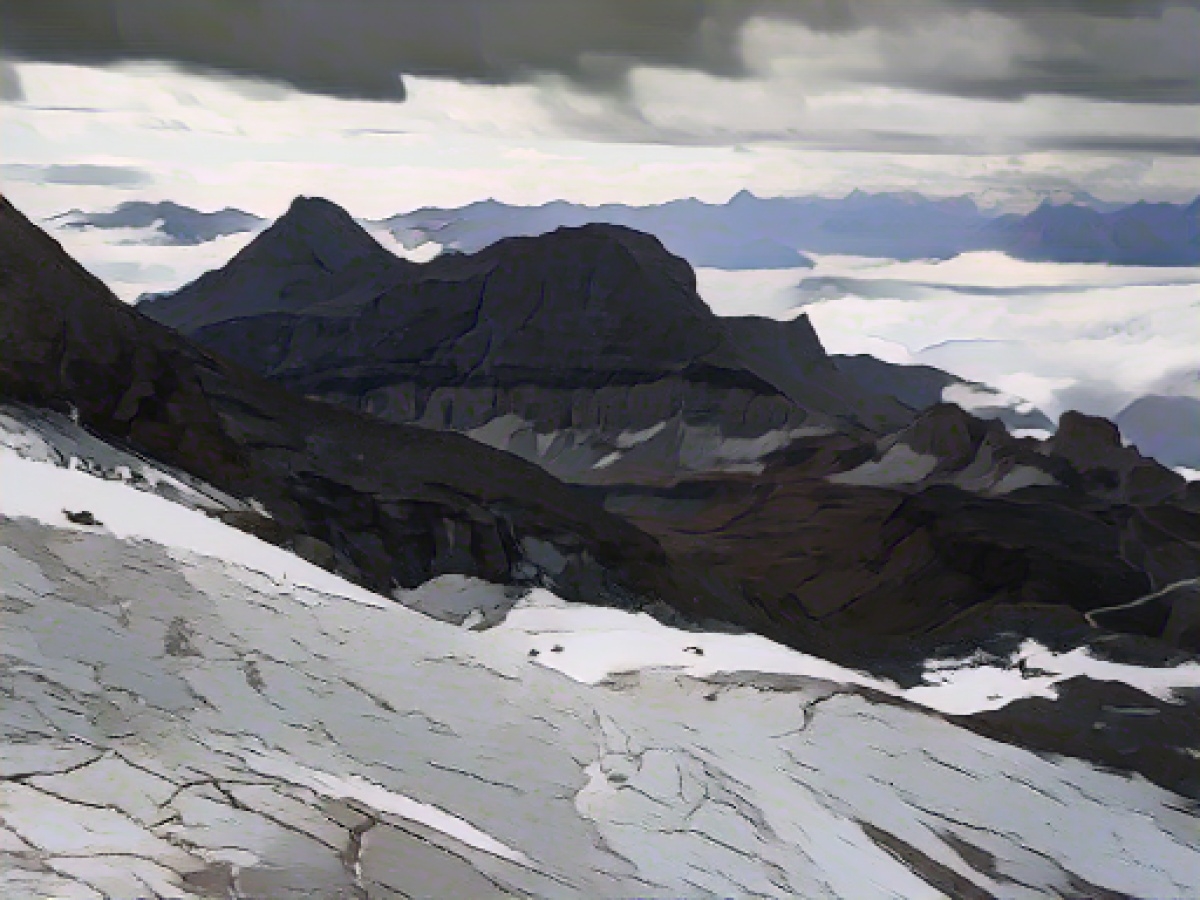Skiing spectacle on the Matterhorn with teething problems
The alpine ski stars will plunge down the "Gran Becca" at an expected speed of 135 kilometers per hour. The new downhill run on the Matterhorn is set to be a unique spectacle. The start at around 3800 meters is the highest in the World Cup. The 3.7-kilometre course from Zermatt in Switzerland to Cervinia in Italy is the first to run through two countries.
However, the new prestigious project of the Fis World Ski Federation is not only starting a year later than planned, but is also accompanied by huge discussions. About the climate, sustainability, the race calendar - once again, it's about many things, but - as is now so often the case - hardly about the sport itself. It is possible that the expected fresh snow and wind will throw a spanner in the works for the organizers by the weekend anyway. Last season, the premiere was canceled because there was too little snow. Cancelling it again would be a fiasco in terms of PR.
Wolfgang Maier, Head of Alpine Skiing at the German Ski Association (DSV), has let it be known ahead of the men's races planned for Saturday and Sunday that he wants to concentrate on his core business for the time being. The recurring questions about the accompanying circumstances will come sooner or later anyway. Quite a few protagonists in the alpine ski scene have long felt like pawns in the game - between climate activists, conservationists, politicians, tourism associations and, last but not least, their own world federation. The glaciers are melting and winter sports are increasingly coming under the spotlight.
Controversial excavation work
The new races on the Matterhorn show that the local government "continues to prioritize tourism development over the preservation of our environment, as it did in the 20th century", the Green Party of the canton of Valais recently complained. Images of excavation work on the Theodul Glacier had caused outrage. Greenpeace Switzerland and other nature conservation organizations expressed the suspicion that some of the work was taking place outside the permitted sports zone. The canton's building commission stopped the work.
A small part of the originally planned slope was outside the zone permitted for skiing. The organizers corrected the route and apologized. "If we were slightly out of bounds, then - once again - we apologize, it was never our intention," said head of organization Franz Julen on Swiss television.
For Julen, the Matterhorn Downhill is "one of the most sustainable ski races ever". 95 percent of the slope area already exists, he argues. Most of the skiing is done on glaciers and natural snow. And there are already existing facilities for the artificial snow required. "If you compare what is happening in the world today with the climate, we take three large machines and groom a glacier for three weeks," explains Julen. If you put that into perspective "with the social and economic factors involved", he says, "this work is justifiable."
Ski tourism is to be boosted
But the date of the races is also controversial. One week after the men, it's the women's turn. Why in November and not in late winter, many people ask. In Zermatt itself, however, there seems to be just as little interest in postponing the event as in Sölden, where the season opened on the last weekend of October. In both regions, the World Cup races are intended to boost ski tourism.
Whether it's DSV Alpine boss Maier or Germany's top downhill skier Thomas Dreßen: hardly any of those who are actually involved would have anything against the season starting later. Even Fis President Johan Eliasch recently made a surprising plea to postpone the start in Sölden even further. However, this is not possible in the current calendar due to the new Matterhorn races. The situation is tricky. And the sport remains a minor matter.
The controversial excavation work on the Theodul Glacier, a part of the Matterhorn Downhill course, has sparked concerns among environmental activists and nature conservation organizations, who suspect that some of the work was carried out outside the permitted sports zone. Despite the accusations, the organizers corrected the route and apologized for any oversight.
Amidst the climate discussions and sustainability concerns surrounding the Matterhorn Downhill, the new alpine ski races aim to boost ski tourism in both Zermatt and Cervinia, with the men's races scheduled for the weekend and the women's race planned a week later. The glacier's grooming for the races, according to Julen, is justifiable considering the minimal impact it has compared to global climate implications.
Source: www.dpa.com








